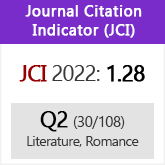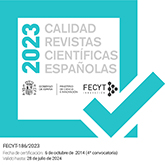La identidad nacional y Calderón en la polémica teatral de 1762-1764
DOI:
https://doi.org/10.3989/revliteratura.2004.v66.i131.143Keywords:
National identity, Spanish theater, Calderón, enlightened reformism, conservatism, legitimacy and intellectual authorityAbstract
Drawing on contemporary theories about national identity, legitimacy and intellectual authority this article explores identitarian issues at stake during the 1762-1764 controversy on Spanish theater. Re-reading texts by Clavijo y Fajardo (El Pensador), Nicolás Fernández de Moratín (Desengaños al teatro español and other writings), Mariano José Nipho (Diario Estrangero and La nación española defendida) and José Romea y Tapia (El escritor sin título) we contend that what these authors are debating indeed is not theater but the legitimacy and authority they are claiming for, and ultimately opposing conceptions of national identity. Calderón becoming a cultural icon of such identity. Particularly significant is the role of autos sacramentales in this context. In effect, acrimony and irritation are part of this polemics because orthodox Catholicism is, from a conservative point of view, an essential component of what they consider Spanish national identity. The prohibition of the autos is just a sign of a temporary change in the relationship of forces.
Downloads
Download data is not yet available.
Downloads
Published
2004-06-30
How to Cite
Bezhanova, O., & Pérez-Magallón, J. (2004). La identidad nacional y Calderón en la polémica teatral de 1762-1764. Revista De Literatura, 66(131), 99–129. https://doi.org/10.3989/revliteratura.2004.v66.i131.143
Issue
Section
Studies
License
Copyright (c) 2004 Consejo Superior de Investigaciones Científicas (CSIC)

This work is licensed under a Creative Commons Attribution 4.0 International License.
© CSIC. Manuscripts published in both the printed and online versions of this Journal are the property of Consejo Superior de Investigaciones Científicas, and quoting this source is a requirement for any partial or full reproduction.All contents of this electronic edition, except where otherwise noted, are distributed under a “Creative Commons Attribution 4.0 International” (CC BY 4.0) License. You may read here the basic information and the legal text of the license. The indication of the CC BY 4.0 License must be expressly stated in this way when necessary.
Self-archiving in repositories, personal webpages or similar, of any version other than the published by the Editor, is not allowed.














